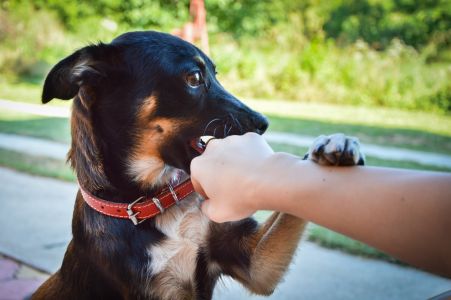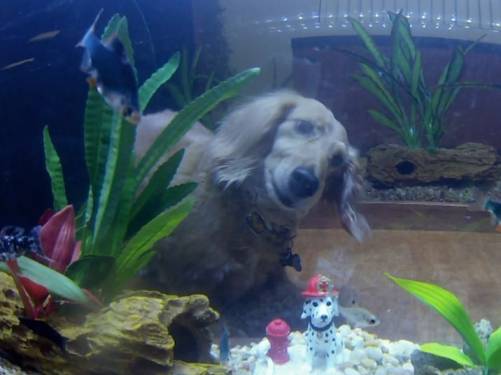Dogs love to snack and have been known for eating just about anything! You may set some compelling tidbit down, and then your dog jumps quick and snarfs it down! Sometimes there’s not even a chance to holler “No!” before your dog swallows down his yummy treat! But what happens if a dog eats a kebab stick?
Connect with a verified veterinarian in minutes. Licensed vets are available 24/7 to answer your questions. No need to worry about your furry family member.
Has your dog eaten a kebab stick? Are you worried the kebab stick will make your dog sick? If so, then you’ve come to the right place. We understand it can be scary when your dog eats something like this.
In this article, we’ll take a look at kebab sticks and whether or not they can make your dog sick. Let’s get started!
What is a Kebab Stick?
A kebab stick (also called a skewer) is a thin piece of wood or metal, which is used to hold food and cook it. The food may be grilled or roasted, depending on the type of ingredients. For instance, meat and vegetables are commonly put onto kebab sticks to be cooked together.
Kebab sticks are used in a wide variety of cuisines. Did you know they’ve even been around for hundreds of thousands of years? The first evidence of skewers used to cook food was found in Schoningen, Germany at a site that was determined to be 300,000 years old!
While kebab sticks have been popular for a very long time, what happens if a dog swallows one of these cooking utensils?
Kebab Sticks & Dogs
Kebab sticks are not safe for dogs. This is because the skewers usually have at least one sharp end that can cause damage to the dog’s mouth or digestive tract. What’s more, if the dog chews the kebab stick, it’s possible small slivers of wood could break off. These could also become lodged in the mouth, in the esophagus, or in the digestive tract.
Dogs who have swallowed skewers have been known to choke on the wood, suffer from tears and wounds in the mouth and esophagus. The skewers have even punctured the stomach or the intestines.
One more worry is that the parts of the kebab stick could even create an intestinal blockage in the dog’s intestines. This is a very dangerous condition that can lead to death if left untreated.

Review symptoms, medications & behavior to keep your pets healthy with a Vet Online in just minutes.
Ask a Vet Live NowSymptoms of Kebab Stick Ingestion in Dogs
You may notice these symptoms if your dog has swallowed a kebab stick:
- Mouth or throat wounds
- Choking, gagging (skewer may be caught in the esophagus and cutting off air)
- Diarrhea
- Weakness
- Lethargy
- Loss of appetite
- Abdominal pain and bloating
- Dehydration
- Vomiting
If you notice any of these symptoms in your dog, then call the vet immediately. This is an emergency. Your dog needs to be evaluated and treated by a vet as soon as possible. Doing so may just save your dog’s life!
Connect with a verified veterinarian in minutes. Licensed vets are available 24/7 to answer your questions. No need to worry about your furry family member.

Julie
Julie is a graduate of the University of North Carolina, Wilmington, where she studied Animal science. Though contrary to the opinion of her parents she was meant to study pharmacy, but she was in love with animals especially cats. Julie currently works in an animal research institute (NGO) in California and loves spending quality time with her little cat. She has the passion for making research about animals, how they survive, their way of life among others and publishes it. Julie is also happily married with two kids.
Review symptoms, medications & behavior to keep your pets healthy with a Vet Online in just minutes.
Ask a Vet Live Now




